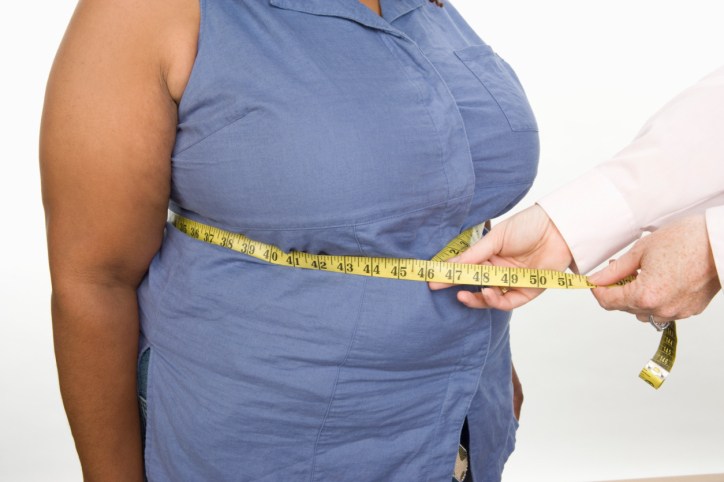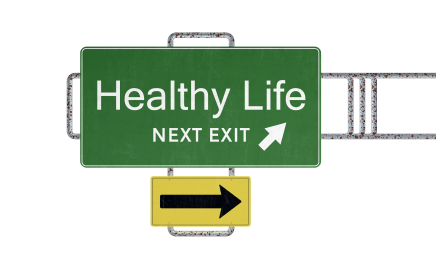Healthy Weight Loss Tips That Defy the Myths
When it comes to weight loss and all of the diet fads and exercise gimmicks, many people tend to have a hard time separating typical weight loss myths from fact. This can often leave people not seeing the results that they're after, often leaving them feeling frustrated and unmotivated in the end. However, by separating fact from fiction in gaining a little bit of know-how when it comes to these all-too-common myths, as well as checking with your healthcare provider, you can get on the right weight loss path for your needs.
Dieting Alone Will Help With Weight Loss -
Absolute fiction. Even if it might help temporarily, dieting alone is not the solution for weight loss; however, nor is just exercise alone. By finding a healthy balance of eating properly and exercising regularly, both with cardiovascular and muscle-toning, you'll not only get the results that you're after, but you'll improve you're overall health and find more energy to see to the rest of the day.
Drastically Cutting Calories Will Make You Lose Faster -
Quite untrue. While your body will either gain or lose one pound for every 3,500 calories lost or gained, your body also requires a certain amount of daily calories in order to function properly. The amount of daily calories that you need is based on your age, height, weight, gender, level of exercise or activity, which you can find numerous resources for calculators or calculations to match your needs and goals. Going too far under the required caloric intake can actually cause your body to go into survival mode, believing that you are starving, and can actually slow your metabolic rate.
Dieting or Exercise is the Only Way to Cut Calories
- In truth, many find greater success incorporating both exercise and eating habits in order to cut the necessary calories to lose or maintain their weight. Not only does doing both allow you to cut more slack on the dieting ventures, but it also does so when it comes to how much you need to exercise. Instead, it's often advised to find a happy medium for both. This way you're not feeling deprived food-wise or overworked workout-wise. If you want to lose 500 calories per day, for instance, you could aim to burn 250 calories via exercise and cut 250 from your daily intake.
Cardiovascular Workouts Are the Key to Success -
False. While doing regular cardiovascular workouts are important in order to keep your heart and the rest of your body strong, it generally will not work on its own when it comes down to actual weight loss and toning. In order to get the most effective results, muscle-toning exercises are also needed along with cardio ones. It's also important to vary your routine, whether if it's doing interval training or switching up on what you do in order to prevent yourself from hitting a plateau, since your body needs to be constantly challenged.
Going on a Strict Diet Plan Will Work Best -
In most cases, strict diet plans can often make individuals feel deprived and, as a common result, can have people rebelling in the end after the same, tired, and boring routine wears thin. While it's a good idea to cut out unnecessary or empty calories as a rule, or as much as possible, it's OK to splurge now and then as long as it's within reason. In the end, working on moderation, portion-size and aiming toward eating smarter is often the key to success.
Fat-Free/Carb-Free Diets Will Do the Trick -
While fat-free or carb-free diets might work on a temporary basis, they often leave people in a rut later on, even having them gain more weight than they originally started off with if they happen to miss the mark later on. The fact is that cutting key food groups from your daily diet can often trigger your body to compensate for the loss, or they may feel the loss taking its toll on the body. Many fats, for example, can actually be beneficial to your health and can even play a roll in your emotional well-being and levels of energy. A severe lack in carbohydrates may actually lower your metabolism due to changes in hormones that control fat-burning. The key is to separate the good fat and carbs from the bad ones.
It's OK to Skip Meals and Bad to Snack -
Quite simply, skipping meals can result in your body not only getting enough energy or have it think you're going hungry, which may factor into the rate of how much fat your body burns, but it can also pose to risk of over-eating later on. Snacking is actually a good way to prevent over-eating problems, as well as promotes energy to keep you going throughout the day. The trick, however, is to eat smart and watch your portions.
-
Thoughts To Think About For Obesity Weight Loss
There are many suggestions to consider h
-
Burn Fat — Ways to Take on This particular Struggle
Continuing to keep fit and slim is tough since you may very well be in
-
How To Naturally Turn Your Slow Metabolism Into A Fast Fat Burning Machine
When Thanksgiving, Christmas, and other holidays come around where I e
-
Will a Gym Membership Help You Lose Weight?
Whether or not a gym membership will help you lose weight depends on
-
We Are Programmed To Resist Weight Loss
Losing Weight Research confirming the human body is designed to strong
-
What To Do When Your Child Is Overweight
With your busy day to day schedule with work and things to do at home,
- DON'T MISS
- Weight Loss Make A Significant And Lasting Lifestyle Change
- Are You A Candidate For Weight-Loss Surgery?
- Diet change boosts energy
- Pick Up Your Pen And Lose Weight
- How can appetite suppressants help diet?
- Avoiding knee or hip surgery
- The Dangers of Corn Syrup in Diets
- Having Trouble Losing Weight Permanently Over 40?
- 6 Natural Health Solutions to Beat Dry Flaky Winter Skin
- Low Carb Diets Are They Safe




